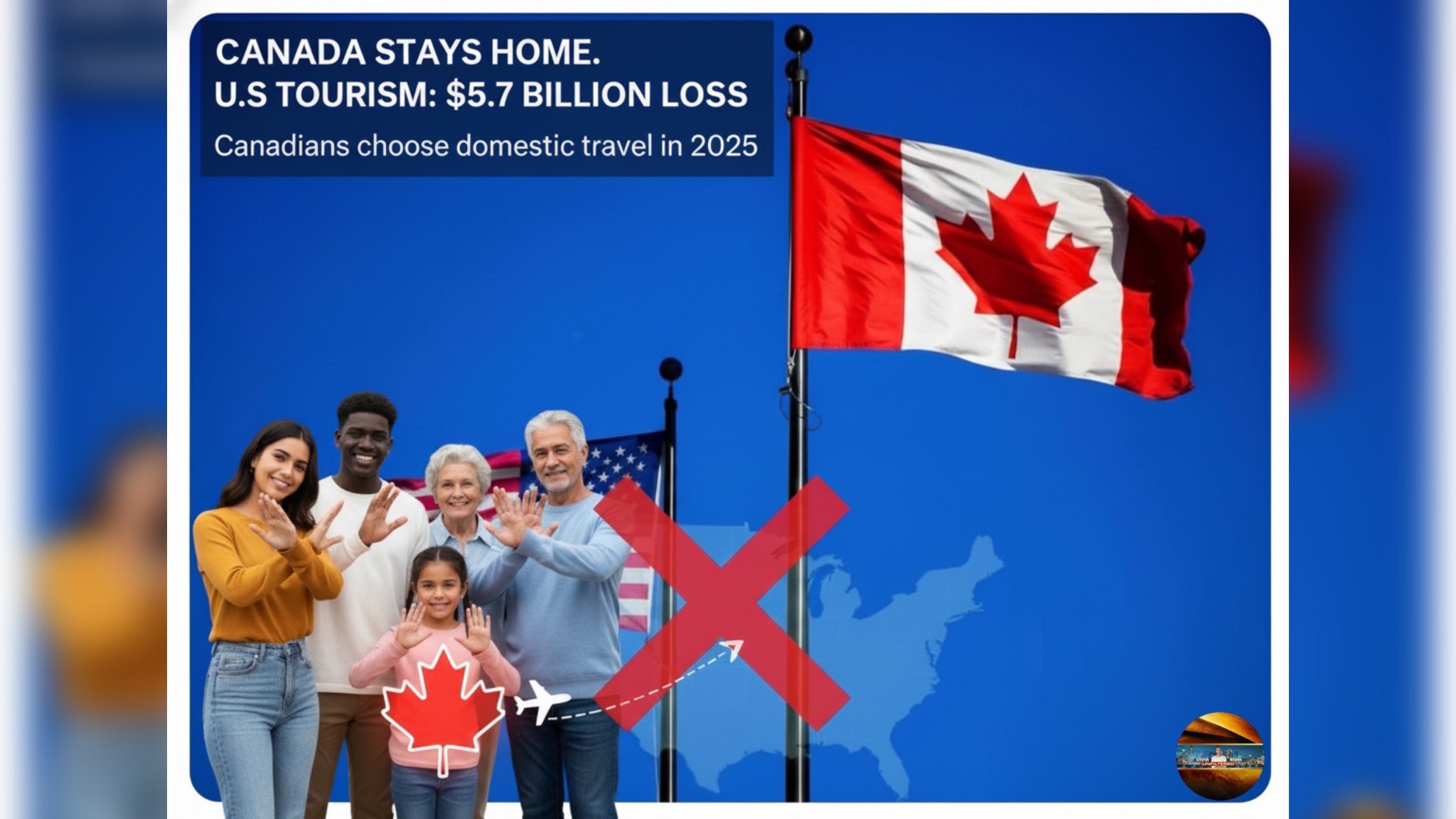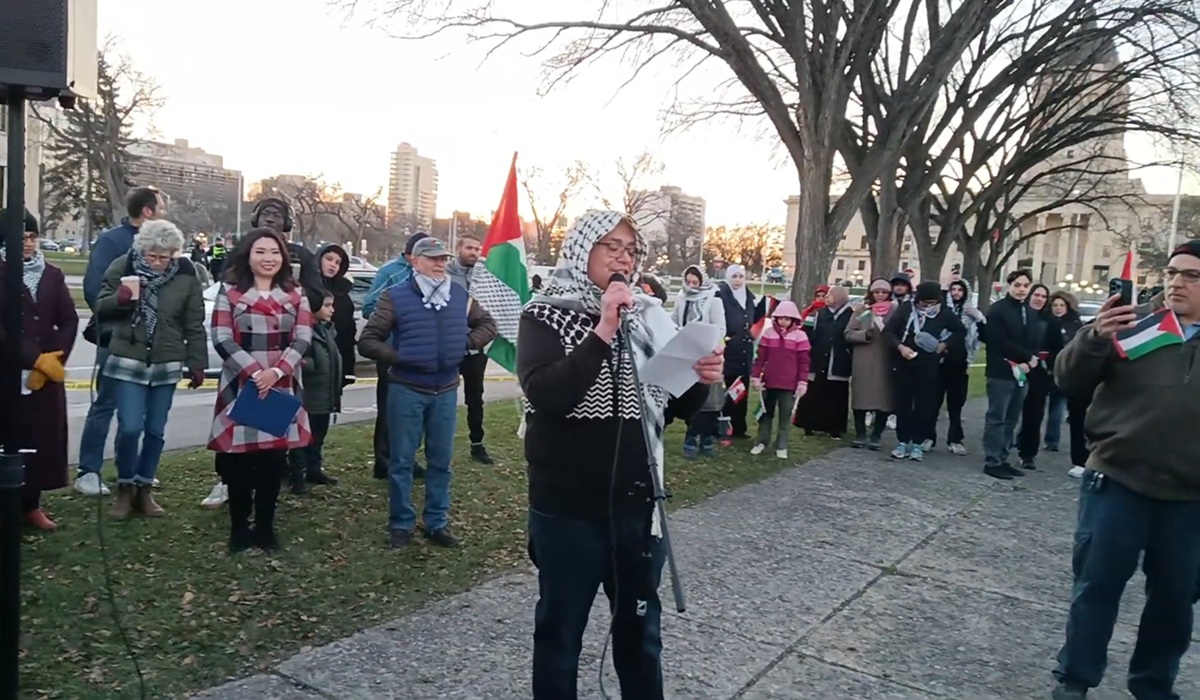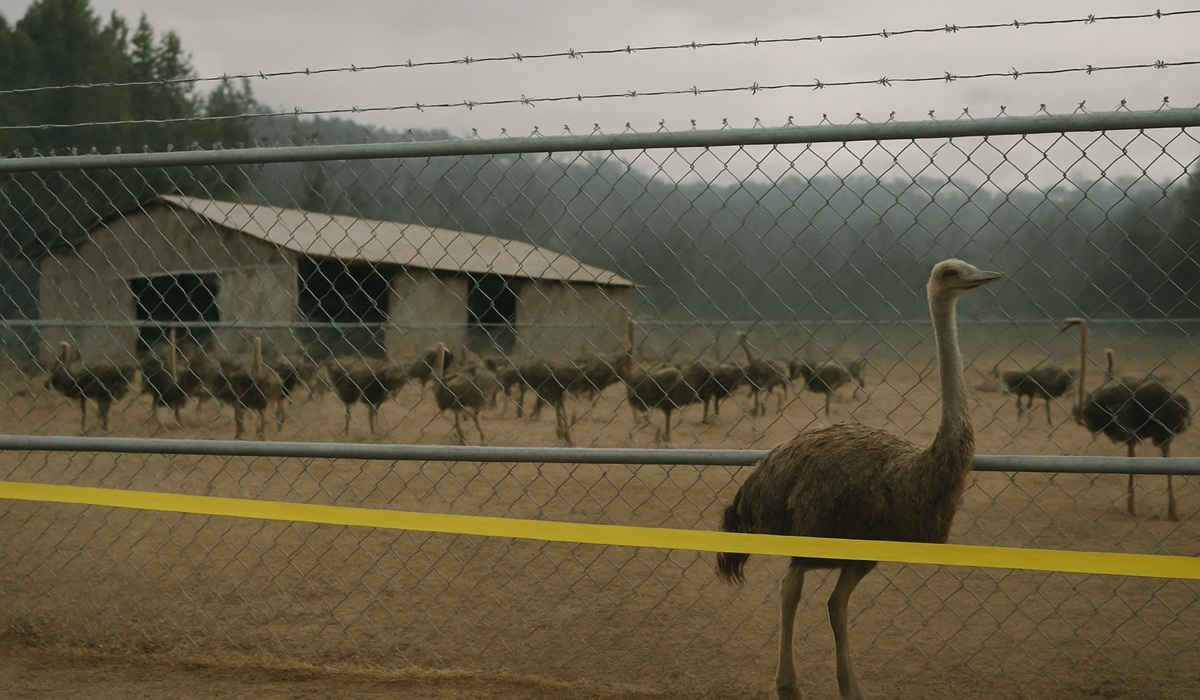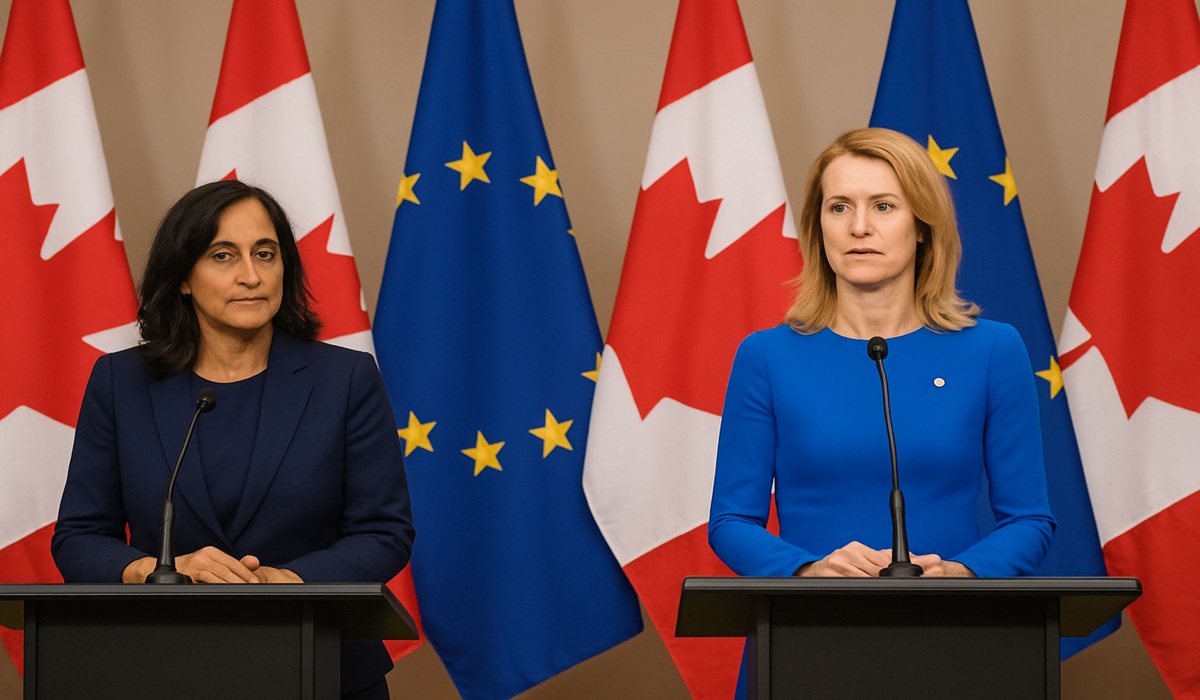When a Flag Rises, a People Long Silenced Step Into the Light of Recognition
- TDS News
- Canada
- November 21, 2025
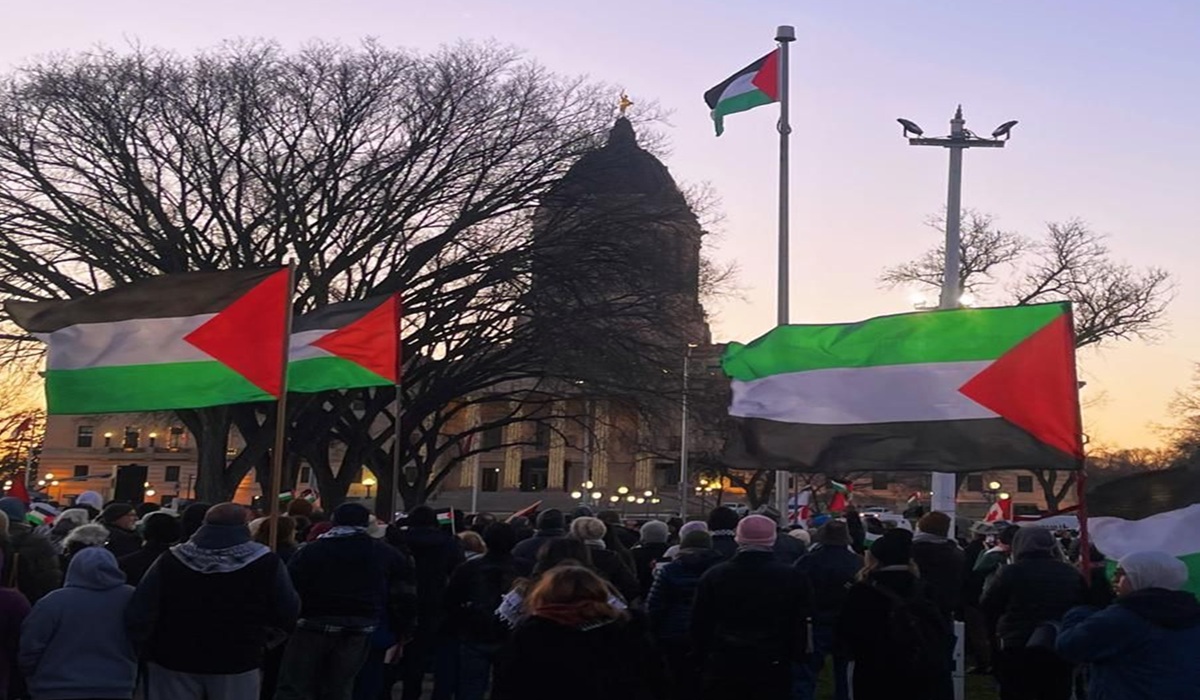
By: Donovan Martin Sr, Editor in Chief
There are moments in history that may not appear monumental to the casual observer. No legislation is passed, no treaty signed, no formal declaration made. And yet, these moments quietly etch themselves into collective memory because of what they represent rather than what they initiate on paper. The raising of a flag is one of those acts. Cloth and color lifted on a steel mast. A simple gesture. And yet, for nations, for peoples whose existence has long been contested, denied, deferred, and deferred again, that simple gesture becomes an act of recognition, a whisper of legitimacy, a signal that the world is beginning — finally — to see.
In Canada, a country that prides itself on diversity, inclusion, and global humanitarian values, the symbolic raising of the Palestinian flag in select cities has carried significance far beyond municipal boundaries. It is more than municipal policy or ceremonial protocol. It is a reflection of shifting consciousness. A recognition, even if incomplete and uneven, that the Palestinian identity is not an abstraction, not a newsreel, not a political talking point, but a people, a history, a homeland, and a struggle that predates many of the world’s modern borders.
What makes this moment especially compelling is that, in many ways, it echoes its own unlikely origins. Winnipeg, long seen as a heartland city, a crossroads of cultures, migrations, and layered histories, has quietly played a role in shaping the conscience of the nation before. Built on Indigenous land, shaped by waves of newcomers, hardened by winters and softened by community, it is a city that understands what it means to search for belonging, to rebuild identity, to find one’s place in a country still grappling with its own past. It is symbolic, then, that conversations around recognition, solidarity, and symbolic action have found resonance there — in a place where identity is not theory but lived reality.
To raise the Palestinian flag is not an act of hostility. It is an act of humanity. It is not the erasure of another people. It is the acknowledgment of one who has been repeatedly erased. It does not solve borders. It does not redraw maps. It does not halt bombs or reopen hospitals or restore homes. But it tells a silenced child somewhere that their suffering is not invisible. It tells a displaced family that their name, their culture, their memory has not dissolved into the dust of geopolitics. It says, simply: you exist, and your existence matters.
And yet, even in this, the silence still speaks. The fact that such symbolic acts have appeared in only some places — scattered, isolated, cautious — serves as a reminder that recognition remains selective. The flag was not raised coast to coast. It was not uniform across all territories, all provinces, all civic spaces of power. It did not rise simultaneously like a tide. Instead, it appeared in pockets, like small lights in a vast, dark landscape.
That fractured response reveals a nation still divided by fear, misunderstanding, political calculation, and competing narratives. It reveals how complicated the word “solidarity” has become in an age of polarized discourse. It reveals how hesitant institutions can be, even when standing on the right side of history has never carried less risk and greater moral imperative. And yet, despite that hesitation, it still happened. And in doing so, it created a precedent that cannot be undone.
This small wave of acknowledgments arrives in the shadow of a global stage where world leaders, including Canada’s Prime Minister, have publicly aligned themselves with the majority of the international community in calling for recognition, restraint, and humanitarian concern. That alignment was not insignificant. It signaled that the narrative had shifted enough that acknowledgement was no longer taboo in the highest corridors of power. But acknowledgement alone is not justice. Solidarity without sustained action becomes performance. And symbolic recognition, while profound, becomes hollow if it is not followed by tangible commitment.
The truth from the ground in Gaza and across Palestine remains almost impossible to articulate without falling short of reality itself. Words like “unlivable,” “catastrophic,” and “unimaginable” have been used so often that they risk losing meaning, and yet they remain the most accurate descriptions available. A territory reduced to rubble. Families living without water, electricity, medicine, certainty. Children growing up in a reality where fear is the background noise of daily life. Generations raised on instinct instead of safety.
In that context, a raised flag is not an end point. It is a beginning. It is the first step in a thousand-mile recognition journey that must involve education, advocacy, policy reform, humanitarian access, economic investment, and honest diplomacy. A gesture without movement will fade. A symbol without infrastructure will be forgotten. But a symbol that is honored through action becomes a foundation.
Where does this lead? It must lead to unity. Not just among Palestinians, not just among Muslims, and not just among activists, but among communities, governments, civil organizations, and citizens who believe in human dignity as a universal truth rather than a conditional one. It must lead to partnerships with organizations that have long championed the Palestinian cause, not only in moments of global attention, but during the quiet years when it was unfashionable and politically inconvenient to speak. Those are the voices who understand the terrain of history. Those are the institutions that hold memory, context, and clarity. And those are the partners who can build something lasting from symbolism.
There is also an opportunity here that must not be ignored: the opportunity for legitimate collaboration. For funding rooted in humanitarian purpose. For educational initiatives. For cultural exchanges. For trauma-healing programs. For storytelling, documentation, preservation, and advocacy infrastructure. Symbolic recognition can open doors that were once sealed tight. It can legitimize requests for grants, support, policy discussions, and inclusion at decision-making tables previously inaccessible. In that sense, the flag is not just a statement. It is a key.
And yet, any path forward must be grounded in the pursuit of peace, not rhetoric. The call must always return to dialogue, to recognition of shared humanity, to the pursuit of a two-state solution grounded in dignity and safety for all peoples. It must reject extremism, reject dehumanization, reject vengeance, and reject endless war as a viable future. The future must belong to children who have never lived without sirens, never slept without fear. It must belong to families who deserve to build, plant, work, dream, and grow old under skies that do not rain destruction.
Unity is not the absence of disagreement. It is the presence of shared purpose. Harmony is not silence. It is the decision to listen. Acceptance is not weakness. It is strength in its most evolved form. And history has shown again and again that what begins as a small symbol, raised in defiance of indifference, can grow into a movement that bends the moral arc of the world ever so slightly toward justice.
There will need to be many more steps. Hundreds of steps. Thousands of acts, large and small. Classrooms that teach truth. Governments that follow principle. Organizations that refuse to be silent. Individuals who refuse to look away. The flag may be a piece of fabric, but what it carries is far heavier: memory, identity, recognition, resistance, and hope.
For a people who have seen their lands dissected, their rights questioned, their grief politicized, and their voices muted, to simply be seen is revolutionary. And revolutions, historically, have always begun not with power, but with recognition.
In that recognition, the world does not find division. It finds its conscience.
And from conscience, everything else must follow.



